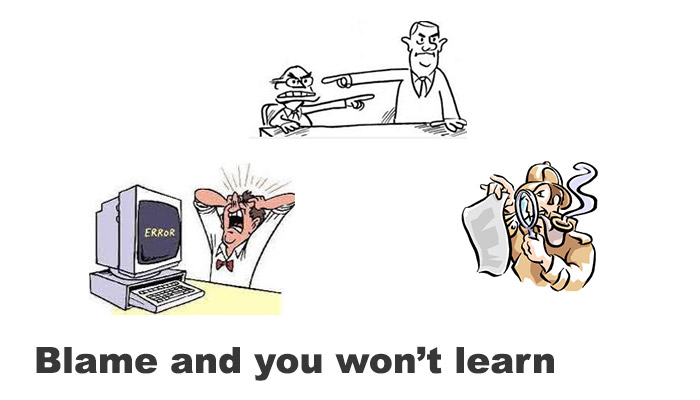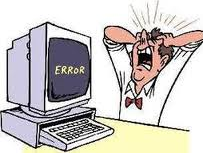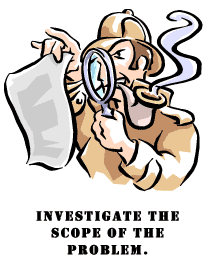Blame is natural. Children learn that very quickly: “That’s not me, that’s my brother!”.
When something is not working and your boss asks you why, your first reaction may be ” that’s not me, that’s because of [Fill the name with anything]”.
This may even be true!
The point of this whole article is to explain why blaming itself is a bad practice because you won’t learn anything from it.
Blaming is easy and helpful because it alleviate the immediate guilt of having done something wrong.
Let me tell you a true story that happened very frequently in my company:
I work in technical support for a company developing and selling engineering software
One day, a client sent me an email stating: “I cannot work with your tool, your software cannot do what I want”
Translation on my side: Client has some problem and is blaming the software.
From the client point of view: The software has a problem
From my point of view: The client has a problem
I could stick with this view of things and believe that all users are stupid and my client will start to think all companies developing software are stupid.
Does it solves anything? Obviously not.
What is the reality?
I don’t know! I have to investigate…
I use one of the best tools that exist in solving complex problems: Asking Detailed questions !
I may find that the user has indeed a lack of knowledge and doesn’t know about the right usage of the software, BUT I may also discover that the software has a bug or is lacking some functionality that the user would like to use.
Why is it bad to blame systematically?
Let’s be frank and realistic:
Nothing is never either black or white, there is always some kind of grey color in between.
Also, everything is relative… something may be wrong for someone, but good for someone else…
If something is not working, broken or fails, there is always a link to something we did in the past. The action may not have caused the direct problem, but it may have contributed to it.
Problem is that if you blame someone else, you are immediately removing the burden from your shoulders, but because of that, you will have no incentive either to investigate what actually went wrong in the process.
If this is not your fault, why should you analyze why it didn’t work in details and improve?
After all, if that’s not your fault, why would you have something to improve anyway?
Do you see the point?
Let me write it in big bold letters if you don’t:
If you blame, you think that you did nothing so you have nothing to learn or improve.
If you blame SYSTEMATICALLY, you NEVER learn.
What can you do about that?
That’s great to write all that, but can you do and why is it useful to know that?
That’s what I do:
- When I hear a criticism or remark that something is not working or failed, I pause.
- Accept that failure is a normal part of life and of any system
- Try to understand what is the cause (not who is the cause)
- Try to remove emotions from the process and stay cool. Problems which are emotionally charged prove to be the most difficult to solve because we cannot think rationally about those problems.
- Do some hypothesis about what could be the cause, understanding that the most obvious explanation may not be the right one.
- Test your hypothesis and draw a conclusion
- Determine what can be improve from the conclusion and you will learn something very useful
If you iterate this process, you will become a master at solving complex issues.
I know this process sounds complex, but you don’t have to apply it to everything, every time… that’s only something to use in case you have a really important problem to solve.
How can I learn more about this topic?
If you are interested about this topic, I recommend the book “Black Box Thinking: The surprising truth about success”
It’s an interesting book that gives concrete examples about failure and success in diverse industries such as aerospace and medical and analyze the causes of failure and success.






